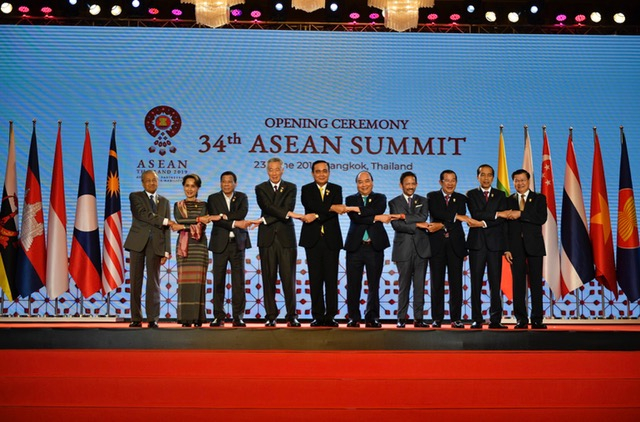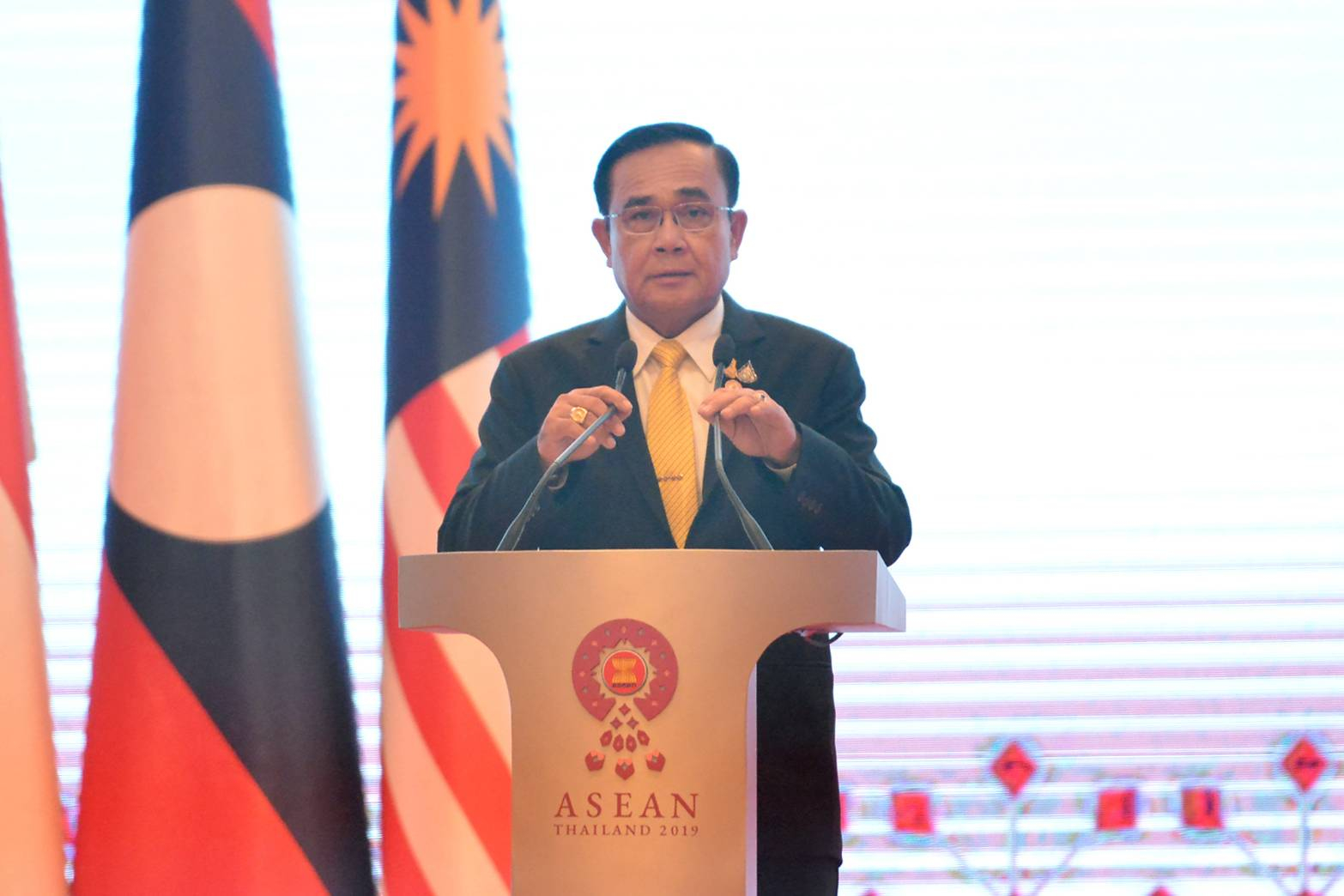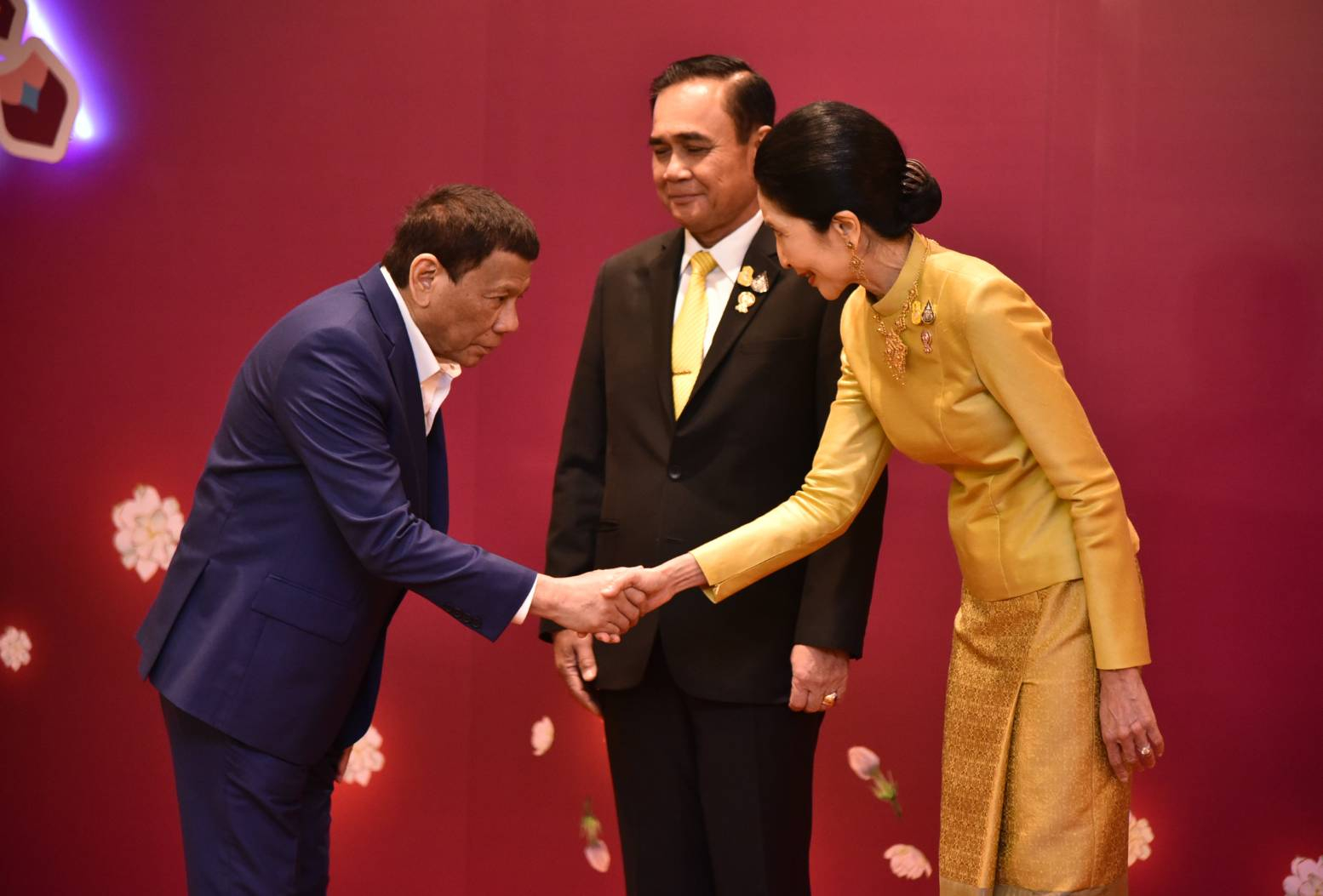

An attack on protectionism in global business - along with progress towards signing the world’s biggest trade deal - were the key points discussed at the 34th ASEAN Summit, which has concluded in Bangkok.
But in a wide-ranging meeting there was dialogue on climate change, terrorism, transnational crime, marine pollution, strengthening partnerships, promoting connectivity and sustainability.
There was even time for the leaders of the 10 ASEAN nations to agree a joint bid to stage the FIFA soccer World Cup in 2034.
But it was business that dominated – and the fallout from the China-U.S. trade war.
This year's host and chair is Thailand, and the Thai Prime Minister Prayuth Chan-o-cha said: "The winds of protectionism that are battering the multilateral trading system remind us that we must hang on even stronger to one another."
"We must reaffirm our determination to conclude the Regional Comprehensive Economic Partnership (RCEP) negotiations this year," he said.
"RCEP will be the largest free trade area in the world and can cushion any impacts from the ongoing trade conflict between some of ASEAN's key trading partners."
RCEP is an agreement originally proposed by China. It would see the 10 nations of ASEAN come together with six more Asia-Pacific countries in a free-trade pact.

Thai prime minister Prayuth Chan-ocha condemned protectionism. /CGTN Photo
Between them, these 16 countries account for a third of all world trade.
Negotiations had stalled, as some countries like India raised objections, but the impact of U.S.-led trade tariffs has revitalized discussions.
Thailand particularly would like to crown its year as ASEAN chair by overseeing a deal signing.
The summit adopted a protocol on marine pollution. Four ASEAN nations are among the worst sea polluters.
Now the Bangkok Declaration on Combating Marine Debris demands that each ASEAN country formulates an action plan.

Mr and Mrs Chan-ocha greet the Philippines president Rodrigo Duterte./ CGTN Photo
Mr Chan-ocha said the region should promote a joint 'ASEAN identity'.
He said: "There is intensifying economic and political competition, disruptive technology affecting daily life and environmental concerns degrading bio-systems."
"If ASEAN did not exist, how would we tackle these challenges? How much would each country acting alone, be able to handle in the face of such challenges?"
"I believe in the power of a strong and united ASEAN as the key to overcoming these challenges and laying down a solid foundation for succeeding generations,"he said
Thailand will stage a second ASEAN summit at the end of the year.
This meeting was attended by leaders of member countries, the next will include partner nations – including those led by China, who are ASEAN's potential partners in that mega trade deal.

Copyright © 2018 CGTN. Beijing ICP prepared NO.16065310-3
Copyright © 2018 CGTN. Beijing ICP prepared NO.16065310-3